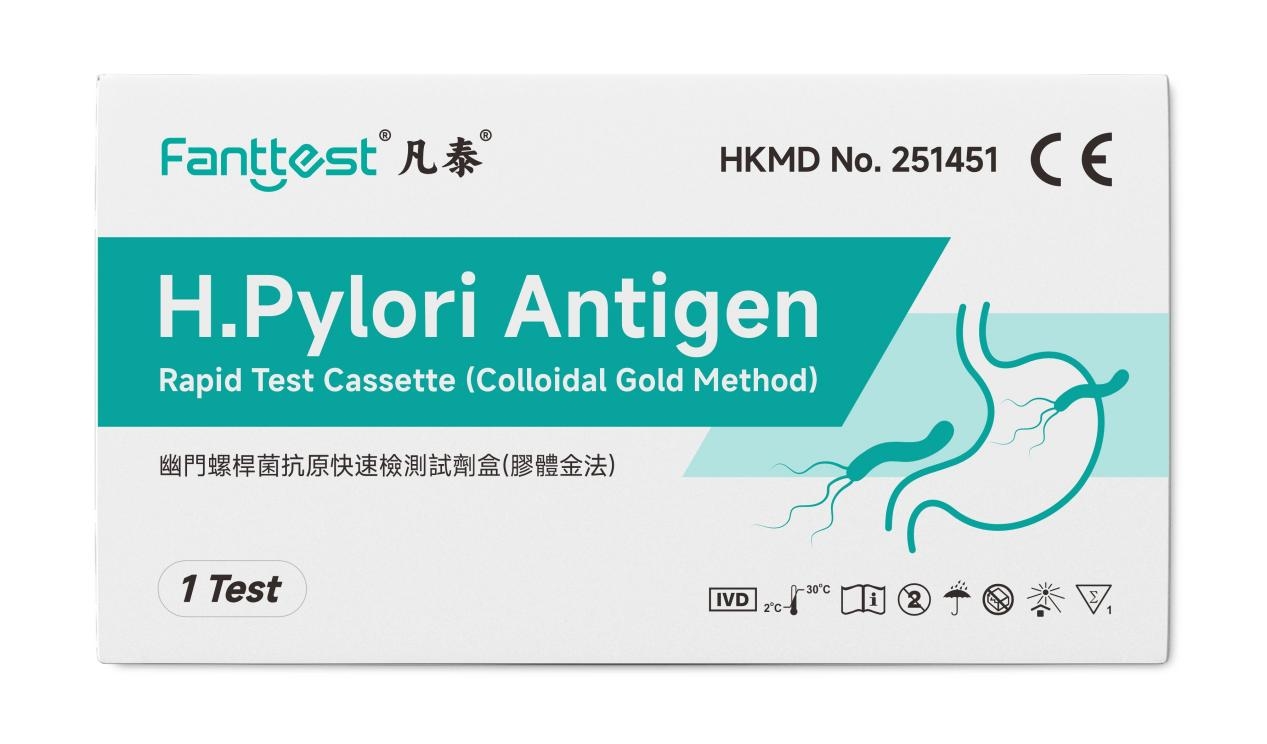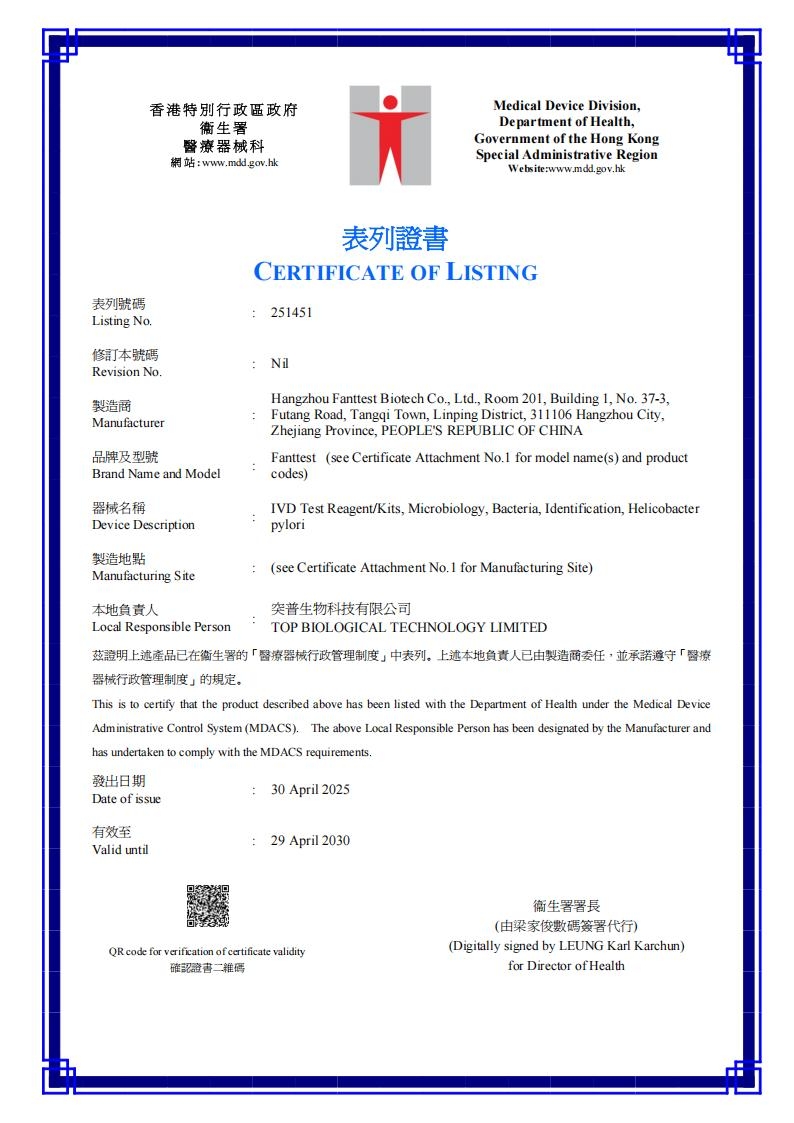On April 30, 2025, Hangzhou Fanttest Biotech (hereinafter referred to as “Fanttest”) announced that its independently developed Helicobacter pylori (H. pylori) diagnostic product has successfully passed the approval of the Hong Kong medical regulatory authorities and is officially certified for market release.
Helicobacter pylori is a spiral-shaped bacterium that resides on the surface of the stomach and duodenum. It is associated with a variety of gastrointestinal diseases such as duodenal ulcers, gastric ulcers, non-ulcer dyspepsia, active gastritis, and chronic gastritis.
Diagnostic methods for H. pylori infection include both invasive and non-invasive approaches. Invasive methods rely on specimen collection and are costly, including gastric or duodenal biopsies followed by urease testing, culturing, or histological staining. Non-invasive methods include the urea breath test, which requires expensive lab equipment and involves moderate radiation exposure, as well as serological methods. Individuals infected with H. pylori produce antibodies that correlate closely with histologically confirmed infections.
The H. pylori antigen test cassette is a rapid diagnostic device designed to detect Helicobacter pylori (H. pylori) antigens in stool samples. It helps diagnose H. pylori infection, which is a common cause of gastritis, peptic ulcers, and can be linked to gastric cancer.


